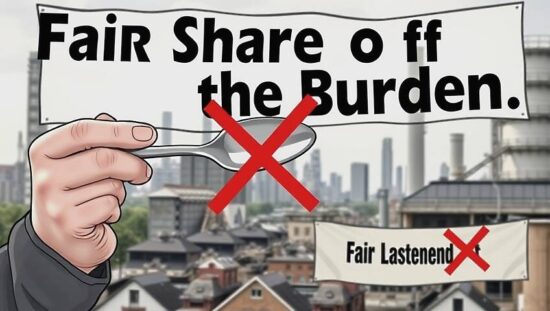The German Trade Union Federation (DGB) has warned of cuts for workers in the debate over rising social insurance contributions. “It is unfair if the employees are now expected to eat the soup that others have stirred. They are not the cause of economic weakness” said DGB Chairwoman Yasmin Fahimi in an interview with the Neue Osnabrücker Zeitung (NOZ). A cap on social contributions is aimed at a pure relief of employers. “Because employees would be forced to compensate the cuts through additional private provision or self-effort. But this is something fewer and fewer people can afford” the DGB chief said.
The employer side has repeatedly called for a return to the 40% contribution limit for social insurance. If one wants to relieve the social insurance systems and thereby the contributions, “the social funds should finally receive adequate tax supplements for the non-insured benefits” Fahimi said in the NOZ interview. Moreover, it is necessary to “bring more people into full-time employment, for example, by abolishing social insurance-free mini-jobs.”
People in mini-jobs cannot build up a pension claim. Additionally, many women are held back in very low employment by mini-jobs, instead of achieving economic independence. “In the end, no corresponding income tax is paid, and the purchasing power is lower” Fahimi said. This high level of social insurance-free employment destabilizes the social insurance systems and a economic damage is caused.
The DGB chairwoman is critical of the employers. “I notice that some in the employer camp would like to bid farewell to the social partnership. This provokes increasingly conflict situations that would certainly not do our country any good” Fahimi said. As a result, unrest and planning uncertainty would arise. There is “no reason whatsoever to deny social rights to employees, nor to blame them for being lazy, sick, and expensive.”
Furthermore, Fahimi said in the NOZ interview: “Those who never made peace with the social state seem to be sniffing the morning air. There is a desire in the shadow of the economic challenges to revise many social advances that are seen only as a cost factor from a one-sided perspective.” The social balance and societal stability have always been a competitive advantage for Germany. “This is now increasingly at risk” the DGB chief warned. “The ability to self-criticism is less developed in many employers. And they set many high demands on others, but not on themselves. Otherwise, management mistakes that have led many companies into crisis would be a bigger topic” Fahimi said, citing Volkswagen as an example.
At the same time, the DGB chairwoman called on entrepreneurs to take a clearer stance against the Alternative for Germany (AfD) in the remaining weeks before the federal election. The party’s call for a withdrawal from the EU and a return to the Deutsche Mark, as the DGB chief said, “would be the ruin of Germany. Therefore, I also appeal to the employers to position themselves more clearly against the AfD than before.





